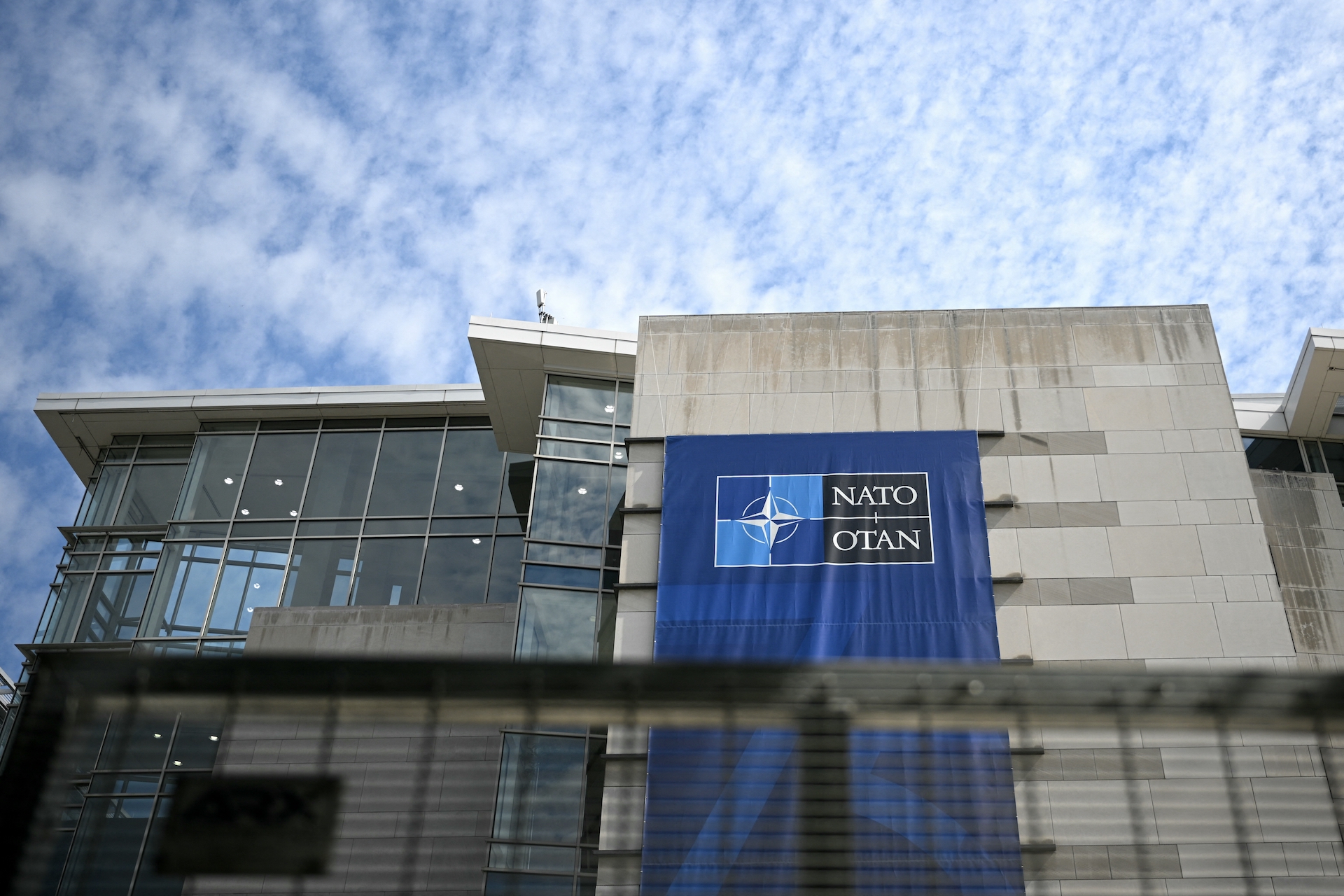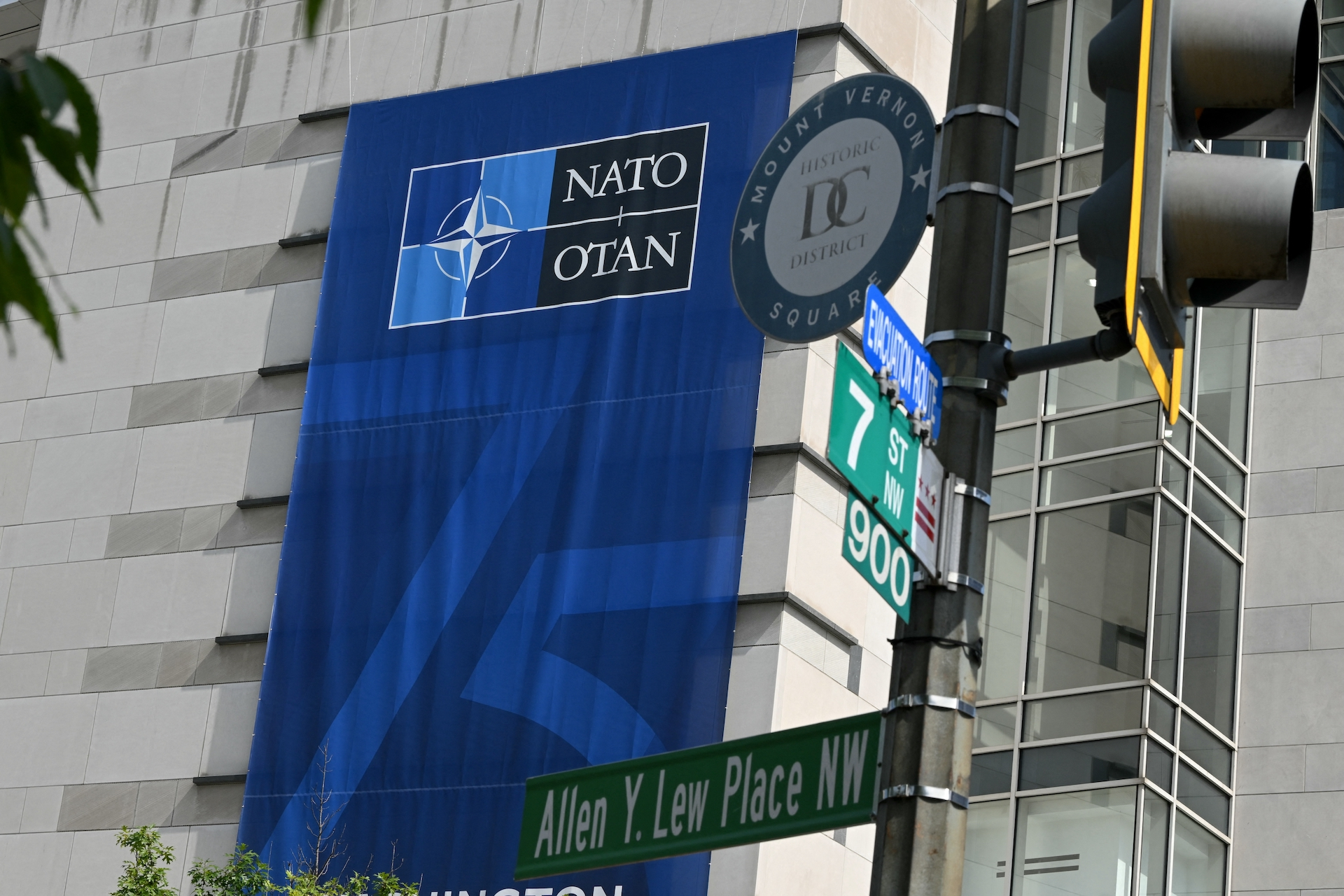NATO Summit Overview: Nato Summit Washington Dc

Nato summit washington dc – The NATO summit, held in Washington DC on March 24-25, 2022, was a pivotal event that brought together leaders from the 30 member states of the alliance. The summit was convened in response to Russia’s invasion of Ukraine and aimed to address the evolving security landscape in Europe.
As world leaders gather in Washington, D.C., for the NATO Summit, all eyes are on President Biden’s speech , where he is expected to outline the alliance’s priorities and challenges. With the war in Ukraine casting a long shadow over the proceedings, Biden’s words will be closely scrutinized for their implications for the future of the transatlantic alliance.
Key attendees included US President Joe Biden, NATO Secretary-General Jens Stoltenberg, and leaders from across Europe. The summit focused on several key topics, including the ongoing conflict in Ukraine, the future of the alliance, and the need to strengthen deterrence and defense capabilities.
The NATO summit in Washington DC brought together world leaders to discuss the ongoing war in Ukraine. President Biden, in an exclusive interview , reaffirmed the US’s commitment to supporting Ukraine and emphasized the importance of unity among NATO allies.
The summit also addressed other global security challenges, including the rise of China and the threat of nuclear proliferation.
Outcomes of the Summit, Nato summit washington dc
The summit resulted in several significant outcomes, including:
- A reaffirmation of NATO’s commitment to the defense of its members and the principle of collective security.
- A condemnation of Russia’s invasion of Ukraine and a call for an immediate ceasefire and withdrawal of Russian forces.
- An agreement to provide additional military and financial support to Ukraine.
- A decision to strengthen NATO’s deterrence and defense posture by increasing the number of troops on high alert and deploying additional forces to Eastern Europe.
- A commitment to work with partners to address the humanitarian crisis caused by the conflict in Ukraine.
Impact on Global Security

The NATO summit in Washington, D.C., held immense significance for global security, particularly in light of the ongoing conflict in Ukraine and the broader European security landscape.
The summit’s outcomes had far-reaching implications, shaping the direction of global security and defense cooperation. Key among these outcomes was the reaffirmation of NATO’s commitment to collective defense and the strengthening of its deterrence and defense posture in response to Russia’s aggression.
Potential Positive Impacts on Global Security
The summit’s outcomes held several potential positive impacts on global security:
- Strengthened deterrence and defense against potential aggression, contributing to stability in Europe and beyond.
- Enhanced cooperation and coordination among NATO allies, fostering unity and a common approach to security challenges.
- Reinforced commitment to the principles of international law and the rules-based international order.
Potential Negative Impacts on Global Security
However, the summit’s outcomes also carried potential negative implications:
- Increased tensions with Russia, potentially exacerbating the conflict in Ukraine and heightening the risk of further escalation.
- Heightened military spending and arms buildup, diverting resources from other pressing global issues.
- Perceived provocation or threat by non-NATO countries, potentially leading to a more polarized and divided global security landscape.
| Potential Positive Impacts | Potential Negative Impacts |
|---|---|
| Strengthened deterrence and defense | Increased tensions with Russia |
| Enhanced cooperation among allies | Heightened military spending |
| Reinforced commitment to international law | Perceived provocation or threat |
Domestic Implications for the United States

The NATO summit in Washington, D.C., has significant domestic implications for the United States. The summit has reaffirmed the United States’ commitment to NATO and its allies, and it has strengthened the transatlantic relationship. The summit has also sent a strong message to Russia that the United States and its allies are united in their opposition to Russian aggression.
Impact on US Foreign Policy and Military Strategy
The NATO summit has a significant impact on US foreign policy and military strategy. The summit has reaffirmed the United States’ commitment to NATO and its allies, and it has strengthened the transatlantic relationship. This commitment is reflected in the summit’s communique, which states that “the United States and its Allies stand together in solidarity and determination to defend our shared values and interests.”
The summit has also sent a strong message to Russia that the United States and its allies are united in their opposition to Russian aggression. The communique states that “the Allies condemn in the strongest possible terms Russia’s illegal and illegitimate annexation of Crimea and its continued destabilization of eastern Ukraine.” The summit also called on Russia to withdraw its forces from Ukraine and to respect Ukraine’s sovereignty and territorial integrity.
The summit’s reaffirmation of the United States’ commitment to NATO and its allies has implications for US military strategy. The United States has committed to increasing its military presence in Europe, and it has also agreed to develop new capabilities to counter Russian aggression. These commitments will require the United States to make significant investments in its military, and they will also have a significant impact on US military strategy.
Key Challenges and Opportunities
The NATO summit has created a number of key challenges and opportunities for the United States. One of the key challenges is the need to balance the United States’ commitment to NATO with its other foreign policy priorities. The United States has a number of other important relationships around the world, and it must be careful not to neglect these relationships in order to focus on NATO.
Another key challenge is the need to develop new capabilities to counter Russian aggression. The United States must be able to deter Russian aggression, and it must also be able to respond to Russian aggression if it occurs. This will require the United States to invest in new capabilities, such as cyber capabilities and anti-access/area denial capabilities.
The NATO summit also created a number of opportunities for the United States. One of the opportunities is the opportunity to strengthen the transatlantic relationship. The summit has reaffirmed the United States’ commitment to NATO and its allies, and it has also sent a strong message to Russia that the United States and its allies are united in their opposition to Russian aggression. This has strengthened the transatlantic relationship and has created an opportunity for the United States and its allies to work together to address common challenges.
Another opportunity is the opportunity to develop new capabilities to counter Russian aggression. The summit has called on the United States and its allies to develop new capabilities to counter Russian aggression. This is an opportunity for the United States to work with its allies to develop new technologies and capabilities that will help to deter Russian aggression and respond to it if it occurs.